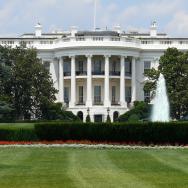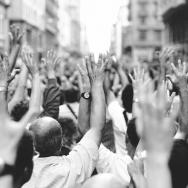The white power movement in America is not the result of “lone wolves.” Rather, it can be traced to highly organized cadres motivated by a coherent and deeply troubling worldview made up of white supremacy and apocalyptic faith.
This is the context that University of Chicago historian Kathleen Belew has continued to stress every time violence breaks out in the United States, including during the Jan. 6 insurrection in Washington, D.C. While those who stormed the Capitol ranged from Trump loyalists to QAnon conspiracy theorists, the mob also included participants in the organized white power movement.
“We must recognize that this action was not meant to produce a mass casualty event,” said Belew, an assistant professor and leading scholar of violence and extremism in American life. “It was meant as a demonstration of power intended to recruit and radicalize other people to the cause.
“We know this because the white power movement is not new. It has long toiled to undermine American democracy, its institutions and to harm its people. Grasping the historical contours of this movement is essential work now for understanding its role in political violence—past, present and future.”
In the virtual Harper Lecture, which first streamed on Feb. 24, Belew presented the history of a movement that consolidated in the 1970s and 1980s around a potent sense of betrayal in the Vietnam War; made tragic headlines in Waco, Ruby Ridge and Oklahoma City; and was resurgent under President Donald Trump. She details more of this history in her acclaimed book, Bring the War Home: The White Power Movement and Paramilitary America.
The Harper Lectures host University experts for stimulating conversations on critical topics. Visit YouTube to watch more Harper Lectures, including recent events with Assoc. Prof. Aaron Esser-Kahn (on vaccine adjuvants), Prof. Melissa Gilliam (on youth health disparities) and Asst. Prof. Bobby Kasthuri (on brain mapping).












 —Prof. Chuan He
—Prof. Chuan He
